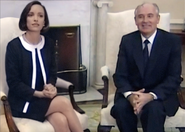The Soviet Union, officially Union of Soviet Socialist Republics (USSR), is a sovereign communist country in northern EurasiaW.
History[]
Politics[]
- See also: List of Leaders of the Soviet Union
With Gorbachev's assumption of office in 1986, the Soviet Union shifted to his vision of a hybrid economic system that blends the benefits of free enterprise and the social safety net of communism. Together with a more laissez-faire approach by the US, this had lead to a rise of communist movements in many other countries. By 1988, Nicaragua, El Salvador, and Colombia in Latin America, as well as Turkey, Egypt, Greece, and more countries around the globe had elected communist governments. Also in that year, the Mexican communist party swept the election,[note 1] turning one of the United States' direct neighbors into a communist state.[1]
In the 1990s, the Soviet Union underwent perestroika and glasnost reforms, transitioning from communism to a hybrid socialist model. Despite his success with the reforms, Gorbachev faced increasing opposition from communist hardliners such as Politburo member Fyodor Korzhenko ahead of the Soviet parliamentary elections in 2001. [2]
In 2003, the communist hardliners, led by Korzhenko, orchestrated a coup d'etat against Gorbachev. The coup was backed by the police and pro-hardliner factions within the KGB, mainly the Second Directorate. While there were initial clashes with the Army, which initially sought to restore Gorbachev to power, the hardliners prevailed and forced an agreement with Gorbachev and the Army for a bloodless transfer of power to Korzhenko.[3] As of 2003, Korzhenko is the President of the Soviet Union.
Culture and economy[]
The Soviet Union, being the world's first and preeminent communist/Marxist-Leninist state, has often been seen as a highly centralized and autocratic nation by its observers and critics in the West. Nevertheless, by the late 1980s, under the auspices of the reformist Premier Mikhail Gorbachev, the Soviet Union began adopting aspects of a mixed-market economy. While many critical industries remained controlled by the state, others were allowed to flourish in the free market, such as the upcoming energy conglomerate Kuragin.[4] In addition, relations with the United States and the Western world had thawed to some extent that Western businesses and citizens could visit and invest in the Soviet Union.[5]
Nevertheless, even by the 1990s, there was still much suspicion about the Soviets' centralized economy, communist ideology, and one-party rule. A level of competition and espionage remained between the Soviets and the West.[6]
By 2000, the Soviet Union experienced an economic boom following market liberalization reforms under Gorbachev, with Moscow becoming known as "Paris of the East". This also led to the rise of a new class of powerful oligarchs and growing inequality. The country remained dependent on exports of rare materials used for battery, clean energy and other advanced technology sectors, making it vulnerable to demand shocks from potential global economic downturns.[2]
Rivalry in space[]
- Main articles: Space Race and Soviet Space Program
The Soviet Union has rivaled the United States in the Space Race since the 1950s. With their national space program, they were ahead of the US for a long period of time and finally beat them by becoming the first to step foot on the Moon in 1969.[7] They also established their own lunar outpost in 1973, Zvezda, which is located on the rim of the Shackleton crater, close to the US base Jamestown.
Gallery[]
Notes
- ↑ There is a discrepancy here between the article shown in the beginning of episode 3x01 and the Apple TV+ Bonus Video covering the years 1984-1992. While in said article the victory of Arnoldo Martínez VerdugoW in Mexico is dated with April 17, 1986, in the bonus video it is said to have happened in 1988. Since the rise of more communist countries was driven by the new Soviet leader Mikhail Gorbachev, who took office in 1986, just 2 weeks before that article's date, it is most likely that 1988 is the correct year of that event.
Behind the scenes[]
- The Point of Divergence of For All Mankind is confirmed to be the survival of the chief architect of the Soviet Space Program, Sergei KorolevW.
- In reality, the Soviet Union collapsed in 1991, breaking up into numerous successor states, the largest of which is the Russian FederationW.
- The Soviet Union adopting a mixed-market economy by the late 1980s strongly mirrors economic reforms introduced in the People's Republic of China in reality, which allowed it to become an emerging superpower by the 2010s.
See also[]
- Mikhail Gorbachev
- Soviet Space Program / Roscosmos
- Space Race
- Zvezda Soviet Moon base
- United States
External links[]
 Soviet Union on Wikipedia
Soviet Union on Wikipedia
References
- ↑ Bonus Video: Another Giant Leap: 1984-1992 - Mexico's new president (1988)
- ↑ 2.0 2.1 Bonus Video: Leap Into a New Millenium: 1996-2001 - Soviet Economic Boom (2001)
- ↑ For All Mankind TV Series - Season 4, Episode 3: "The Bear Hug"
- ↑ Bonus Video: Another Giant Leap: 1984-1992 - Clean Nuclear Energy (1987)
- ↑ For All Mankind TV Series - Season 3, Episode 1: "Polaris" (Press review opening)
- ↑ For All Mankind TV Series - Season 3
- ↑ For All Mankind TV Series - Season 1, Episode 1: "Red Moon"






